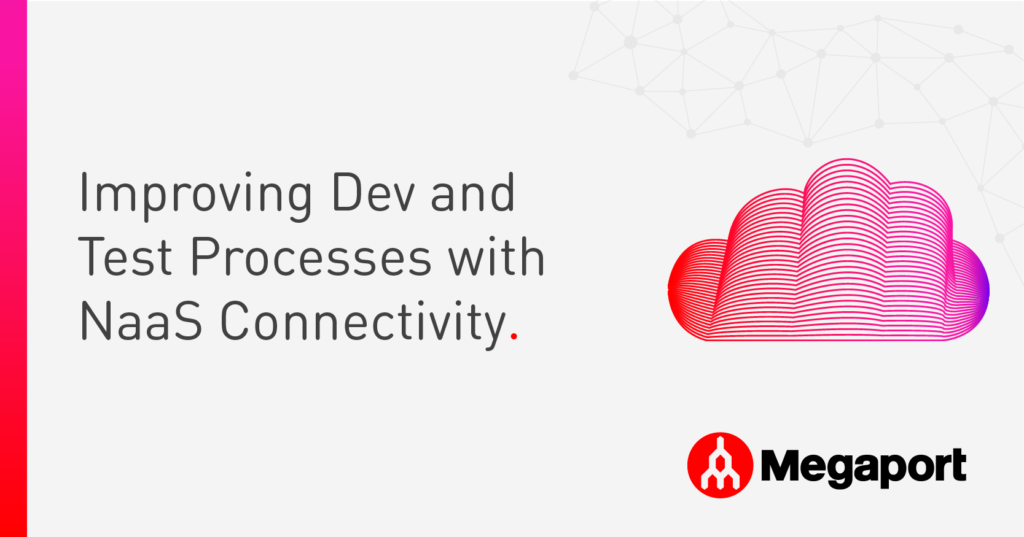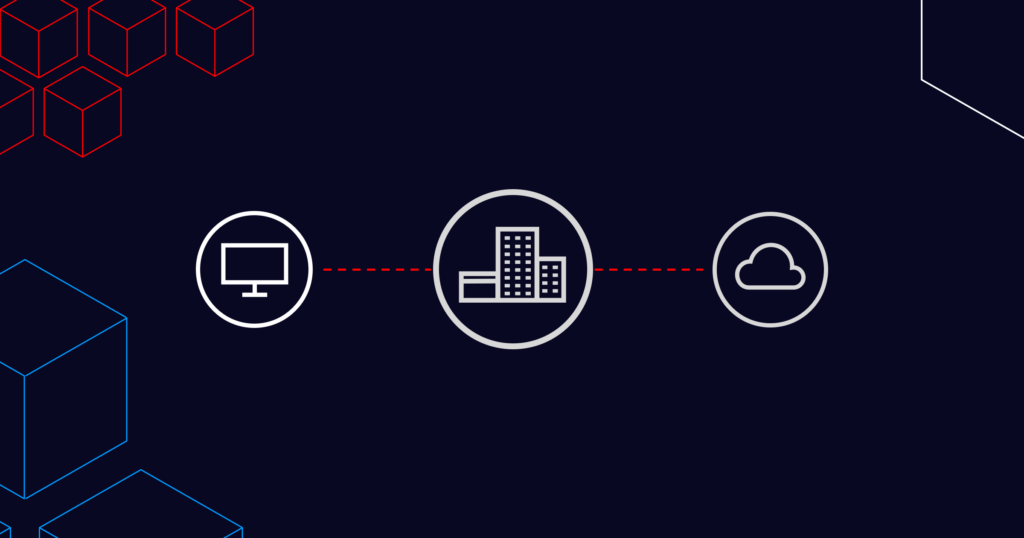
Improving Dev and Test Processes with NaaS Connectivity
- September 25, 2019
How Network as a Service (NaaS) connectivity makes spinning up dev and test environments easy, flexible, and fast.
The cloud hasn’t just had a major impact on how applications are acquired and deployed today – it’s completely transformed the way they’re developed.
Across the board, the cloud has made development processes far more open, and faster than ever before. With dev and test environments hosted and managed in the cloud, developers can easily collaborate on projects from anywhere, deploy new iterations in seconds and embrace a flexible DevOps culture.
But, as with any new cloud initiative, the connectivity options you choose can have a major impact on what your business gets from it. Choose wisely and your cloud-based development processes can get even faster, more flexible and more cost-effective.
Here’s how.
Flexible connectivity gives you platform freedom
One of the biggest ways that the cloud had transformed development is through the widespread availability of Platform as a Service (PaaS) solutions. These services have given everyone access to powerful, enterprise-grade development resources.
From industry-leading platforms designed for DevOps , to agile, low-code tools that make building amazing apps simple, there’s something for businesses of every size and experience level. So, it’s easy to understand why by 2020, almost three quarters of all enterprises will rely on PaaS tools.
When it comes to PaaS connectivity, you have options. If you connect directly to a single Cloud Service Provider, you’ll get a reliable, high-performance connection to their offering. However, as your needs change, you’ll struggle to connect to other cloud development tools – limiting the volume and variety of incredible services your business can access.
More flexible connectivity options like NaaS give you high reliability today, while also giving you platform freedom for the future. If your needs change, new connections to new providers can be provisioned in seconds, so you’ll always have access to the tools you need to create the very best apps and services.
Agility and control is key to development
By their nature, development and testing environments are rarely going to be around for a long time. So, it isn’t just important that they can be spun up quickly when there’s development work to be done – it’s also critical that they can be paid for flexibly and closed when you’re done with them.
The last thing developers need is to get tied into long-term, inflexible contracts for connections and environments that they’ll only need for a short time. Being able to provision what you need, when you need it – and more importantly, only pay for it when you need it – is essential to keeping cloud-based development agile and cost effective.
Consider connectivity options that enable you to provision and close connections yourself, giving you total control of what you connect to, and how much you pay for connectivity.
Connectivity is the backbone of global collaboration and deployment
Seamless collaboration between global development and testing teams is an attractive proposition for any organisation, but it isn’t a given. If you want to support flexible DevOps by enabling development teams to easily collaborate in the cloud, you’ll need a connectivity foundation that supports that collaboration.
That doesn’t just mean enabling individuals to access the PaaS services you subscribe to from any location, it also means connecting your physical locations in a way that supports simple, simultaneous global deployment of new apps and testing environments.
For example, if you’re going to deploy your newly-built applications on premises via private cloud, you’ll need to connect your infrastructure in a way that supports reliable global connectivity to the services you’ve deployed.
Faster provisioning means faster time to market
According to Gartner, 80 percent of applications built in-house by businesses are now cloud enabled or completely cloud native. Today, it makes sense to develop apps in the cloud, because that’s where most of them are going to be deployed.
That’s useful in any development project, but when you’re operating against the clock, cloud-native development really shines. When your team quickly needs to get an updated iteration of an app out to fix a problem or add new functionality, every minute counts. Building that new iteration, testing it, and launching it all in the same place helps you get to market as quickly as possible.
The faster you can provision new development and testing environments, and deploy completed applications, the faster you can get to market. That’s where your connectivity comes in once more. Your connectivity defines your provisioning speed, so if time to market is important to your business, you’ll need an option that lets you provision almost instantly.
Get to the cloud fast with direct connectivity
For any business interested in developing and managing its own applications, the cloud is clearly an appealing choice. But, for those stepping into the world of cloud development and testing for the first time, it’s worth spending a while considering the best ways to connect to cloud development environment and services.
If you’d like to learn more about how Megaport can help you flexibly and reliably connect to transformational development and testing resources in the cloud, reach out to us here to discuss your cloud connectivity needs with one of our experts.


